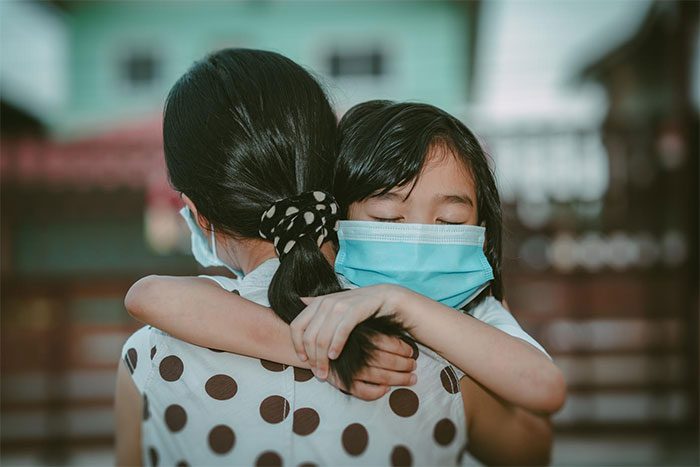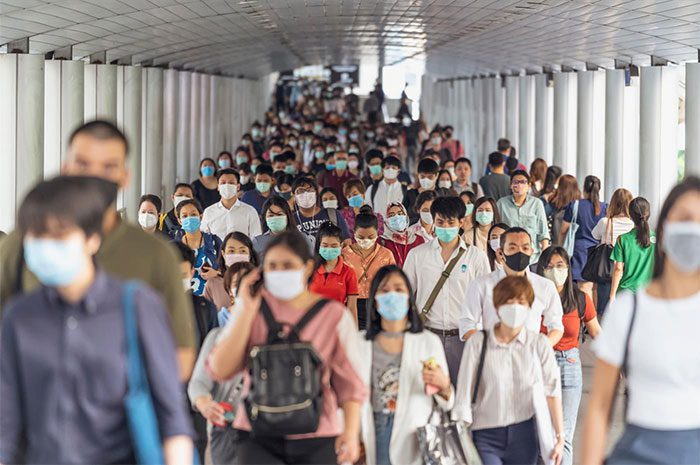Children, the elderly, and individuals with chronic underlying conditions are three groups that need to be equipped with a “shield” against influenza through vaccination to safely enjoy the year-end holiday season.
The end of the year is the “season” for various recreational activities that gather large crowds. Events such as fairs, concerts, parties, and family gatherings can create ideal conditions for the rapid spread of the influenza virus.
Three Groups at Higher Risk for Influenza Complications
According to the Centers for Disease Control and Prevention (CDC), three high-risk groups for seasonal influenza complications include: children, the elderly, and individuals with chronic underlying conditions.
Seasonal influenza is a particularly dangerous respiratory illness for children. According to the World Health Organization (WHO), approximately 28,000 to 111,500 children die each year worldwide due to seasonal influenza. Children, especially those under 5 years of age, have weak and underdeveloped immune systems, making them more susceptible to illness, at risk for dangerous complications, and capable of spreading the virus to others. Seasonal influenza can lead to severe complications in children, such as pneumonia, otitis media, myocarditis, and can exacerbate existing chronic conditions. Children under 14 years of age who contract influenza may face a pneumonia risk that is up to 8 times higher.

Children with weak and underdeveloped immune systems are targets for the seasonal influenza virus.
Unlike children, the weakened immune status of the elderly primarily results from aging and accompanying chronic diseases, making them more vulnerable and at higher risk of influenza virus infection. Influenza contributes to the decline of organ system function in the body, making it difficult for the elderly to fully recover their previous health status. Notably, after influenza infection, the elderly may experience an 8-fold increase in the risk of stroke and a 10-fold increase in the risk of myocardial infarction.

Elderly individuals and those with chronic underlying conditions are at risk of severe influenza complications.
Additionally, individuals with chronic conditions such as asthma, chronic obstructive pulmonary disease, cardiovascular disease, or those who are immunocompromised due to HIV/AIDS or cancer are at a higher risk of mortality when contracting influenza. Specifically, this risk increases 5 times for cardiovascular patients and 12 times for patients with chronic lung disease. Even more severe, patients with both cardiovascular and lung diseases face a mortality risk that is 20 times higher. Seasonal influenza can also worsen chronic conditions that these individuals may already have. For instance, diabetic patients are at a 6-fold higher risk of hospitalization and a 6-fold increase in mortality risk.
The Holiday Season and the “Imminent” Risk of Influenza Infection
In Thailand, there has been a concerning rise in influenza cases in schools, along with two recorded deaths since early October 2023, prompting many health experts in the country to declare this a public health emergency. China has also reported a significant increase in respiratory illness cases; the National Health Commission has called for schools and nursing homes to enhance preventive measures.
During the holiday season, Vietnam often welcomes a large influx of tourists, and conversely, the demand for international travel among the population also rises. The increase in influenza cases in neighboring countries like Thailand heightens the risk of influenza spreading to Vietnam in the near future. Travelers from other countries may bring respiratory illness viruses, including influenza, into the country. Additionally, the continuous movement of domestic tourists also facilitates the spread of influenza.

The movement of holiday travelers facilitates the rapid spread of the influenza virus.
Moreover, the end of the year and the pre-Tet period are times for festivities and gatherings. Hugs and handshakes can provide opportunities for various respiratory illness viruses, including the influenza virus, to thrive. The transmission rate increases with direct contact, especially in crowded places such as schools, workplaces, and entertainment venues.
Get Vaccinated Against Influenza to Enjoy the Holiday Season with Peace of Mind
Holiday recreational activities are indispensable. However, each individual must take proactive measures to ensure safety for themselves and the community. In addition to maintaining hygiene at home and regular health care, annual influenza vaccination is an effective method recommended by experts to proactively protect against the onslaught of seasonal influenza.

Influenza vaccination helps individuals and families enjoy the holiday season with peace of mind.
The seasonal influenza vaccine not only helps protect against influenza infection but also more than that. Getting vaccinated annually should be a regular health care practice to build and maintain immunity at both individual and community levels. Furthermore, protecting vulnerable populations (including children, the elderly, and individuals with chronic conditions) from severe influenza complications should be a top priority to minimize mortality rates and support the sustainability of the healthcare system by reducing hospitalization rates.
This holiday season, individuals should consult their doctors to get vaccinated against seasonal influenza for themselves and their loved ones. Ensuring that the entire family is well protected against influenza will make holiday moments even more fulfilling and reassuring.


















































